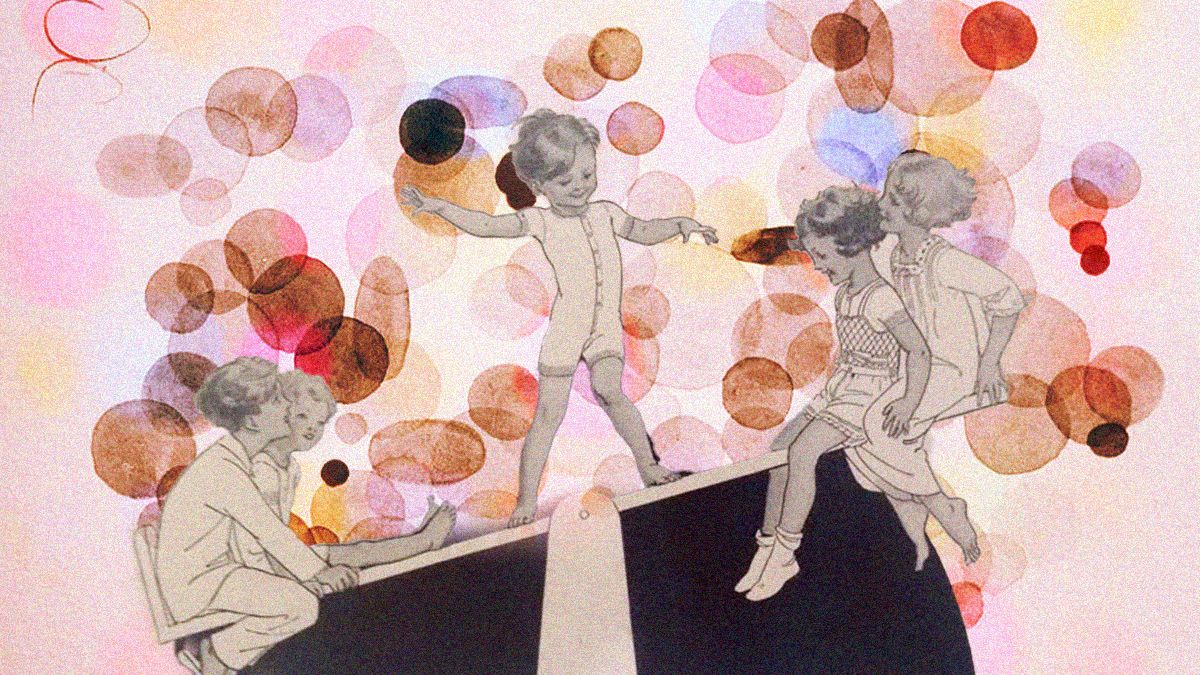
When Did Baby Names Start Getting So Weird?
March 22, 2025
Naming a baby is a polarizing act, I’d argue. Not only is this tiny person going to go by this for the rest of their life, but the politics of the name itself often unlocks a well of drama and disagreements with family and friends. And with the rise of the internet has come a subculture dedicated solely to the art of naming babies. Aside from the blogs (Nameberry, The Bump, etc.), there are godlike TikTok ‘influencers’ and booming subreddits (r/namenerds, and the satirical r/tragedeigh). What once was a corner of the internet inhabited only by soon-to-be parents, now takes up an entire room.
Baby names are also highly influential and indicative of the culture at large. They are often pointed to as indicators of political, economic, and even religious, shifts. For example, Biblical names might point to a renewed interest in Christianity. But by far the most interesting power of the baby name is that of the economy. A 2016 study in the Journal of Applied Psychology looked into the baby name trends from 2004 to 2015, including the time of the Great Recession (2008-2010). The researchers found that “the results are consistent with increasing individualism, … the idea that economic threat leads people to embrace uniqueness.” What it really boils down to is: weak economy = unique name.
In terms of culture, the trajectory of a television show or film can be tracked by the baby names that follow. In 2017, the BBC reported that the name ‘Arya,’ after Arya Stark from Game of Thrones, had entered the top 200 in the UK and Wales, with more than 300 baby girls donning the name. In more recent history, ‘Elphie’ (a diminutive of ‘Elphaba’ from Wicked) and ‘Dutton’ (the surname from Yellowstone) both saw rises in popularity. Celebrities are similarly influential, with ‘Beckham’ (a la David and Victoria) rising as well.
But the word ‘celebrity’ now has a much looser meaning, I might argue, with the rise of influencers and similarly less conventional forms of fame. A TikToker with five million followers might have the same star power as an Oscar nominee. And, when picking apart the new frontier of baby naming social media, a few particular figures stick out. The first, Em (@emdoodlesandstuff on TikTok), has created her own niche subsect of baby naming culture. To quote her consistent video introduction, “I do influencer baby name predictions.” Her specialty is Mormon mommy bloggers, who are known to have more unconventional names, where the phonetics are drawn out or replaced altogether (Paisley to Paisleigh, McKenzie to Makenzeigh). But a new trend has appeared in the influencer baby naming space: non-names..?
Francesca Farago, former reality star, went viral for a TikTok of baby names she and her partner liked but wouldn’t be using. Some of the most outlandish were: Lovely, Baby, Lyrics, Afternoon, Darling, Orca, Ethereal, Odyssey, Alchemy, and Scholar. As Farago states in the video, “words as names are the best for me.” Now, you must be wondering what they landed on for their twin boy and girl: Locket Romance and Poetry Lucia. The reactions were that of pure confusion, but Farago’s names were somehow less polarizing than that of the following figure.
Nara Smith needs no introduction, but for those who have been living under a rock at the bottom of the ocean, she’s a model turned mom of three, who went viral for her complicated, from scratch meals for her kid, and is often hailed as the face of the burgeoning ‘Trad Wife’ trend. Her husband, fellow model Lucky Blue Smith, is descended from a uniquely named family, with sisters Starlie Cheyenne, Daisy Clementine, and Pyper America. Lucky also has a daughter from a previous relationship, named Gravity Blue. It should come to no surprise at this point that, yes, they are Mormon. But the names only get more fantastical from there.
Nara and Lucky’s kids are daughter Rumble Honey, son Slim Easy, and daughter Whimsy Lou. The names are sonically pleasing and seem to fit the family’s trend of “controversial names,” in Nara’s words. Nara made two videos following the aforementioned trend of ‘names we like but wouldn’t be using.’ Among the most commented upon names were Cherry, Bubble, and Tank (for girls), and Frosty, Dust, and Flick (for boys), though the continued shock of the name Slim Easy is one of the top comments on both videos.
So, what does all of this mean?
While the top baby name trends have remained mostly the same: Liam, Noah, Oliver or Olivia, Emma, Amelia. They are stylistically classified as either ‘modern’ or ‘classic’ by The Bump. But the rise of more abstract names, Farago’s “words as names” and Nara’s adjective heavy picks, could point to an economic shakiness, no doubt exacerbated by the impending doom of another four years of Trump.
Will people start naming their children Orca or Flick? Probably (hopefully) not. But there has certainly been, and there will continue to be, an interest in unique names. That is, still conventional names but not within the top 1000.
The delicate, permanent nature of naming a baby can turn it into a stressful experience, but with the new frontier of social media, what was previously unconventional has turned into the norm. Baby naming has its very own world that spans across almost every platform. People have become desensitized to offbeat, unusual names. And, in a way, perhaps it has removed some of that anxiety, because no matter what you name your baby, it won’t be Tank or… Baby.